Search Results
Showing results 1 to 20 of 23

Dripping Wet or Dry as a Bone?
Learners investigate the concept of humidity by using a dry and wet sponge as a model. They determine a model for 100% humidity, a sponge saturated with water.

Dunking the Planets
Source Institutions
In this demonstration, learners compare the relative sizes and masses of scale models of the planets as represented by fruits and other foods.

Tumble Wing Walkalong Glider
Source Institutions
In this physics activity (page 2 of the PDF), learners will construct their own walkalong glider. They will explore how air, though invisible, surrounds and affects other objects.
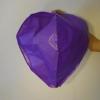
Hot Air Balloon
Source Institutions
In this activity, learners build a hot air balloon using just a few sheets of tissue paper and a hair dryer.
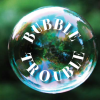
Bubble Trouble
Source Institutions
In this activity on page 15 of the PDF, learners measure the amount of bubbles that they make using a detergent.
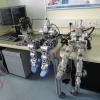
Exploring How Robots Move
Source Institutions
In this activity, learners explore how pneumatics and hydraulics could be used to produce movement in a robotic arm.

Density Rainbow and the Great Viscosity Race
Learners conduct two activities to investigate two properties of liquids: density and viscosity. In a clear container, learners stack 7 different liquids which will layer according to their density.
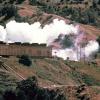
Geothermal Power Plant Model
Source Institutions
In this activity, learners make a model of a power plant that uses steam. Learners use simple materials like foil, a tin can, and a pot of water to model a geothermal power plant.
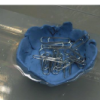
Above Water: Buoyancy & Displacement
Source Institutions
In an investigation called "Shape It!" learners craft tiny boats out of clay, set them afloat on water and then add weight loads to them, in order to explore: how objects stay afloat in water; what th
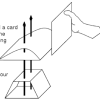
Wingin' It
Source Institutions
Learners explore the Bernoulli effect by building an airfoil (airplane wing) and making it fly.

Keep-a-Cube
Source Institutions
In this activity, challenge learners to keep an ice cube from completely melting in 30 minutes. Learners engineer a box or wrap to prevent an ice cube from melting.
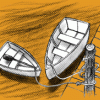
Watercraft
Source Institutions
In this design challenge activity, learners build a boat that can hold 25 pennies (or 15 one inch metal washers) for at least ten seconds before sinking.
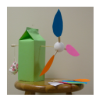
Wind Works!
Source Institutions
Learners will build and experiment with their own windmills made from simple household materials.
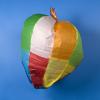
Fly a Hot-Air Balloon
Source Institutions
Learners assemble a hot-air balloon from tissue paper. The heated air (from a heat gun) inside the balloon is less dense than the surrounding air and causes the balloon to float.
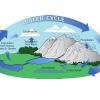
Moving Without Wheels
In a class demonstration, learners observe a simple water cycle model to better understand its role in pollutant transport.

Crunch and Munch Lab
Source Institutions
In this activity, learners use three types of cheesy snacks--cheese balls, cheese puffs, and Cheetos--to learn about polymers.
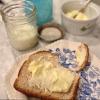
Butter Up
Source Institutions
In this activity, learners will discover how to make butter from scratch. One optional tips includes adding marbles to speed up the process.

Fun with Bernoulli
Learners conduct four simple experiments to demonstrate the effects of air pressure.
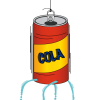
Pop Can "Hero Engine"
Source Institutions
In this activity, learners build water-propelled engines from soft drink cans.
Water Motor
Source Institutions
In this physics activity (page 10 of the PDF), learners will explore how energy from moving water can be used.
